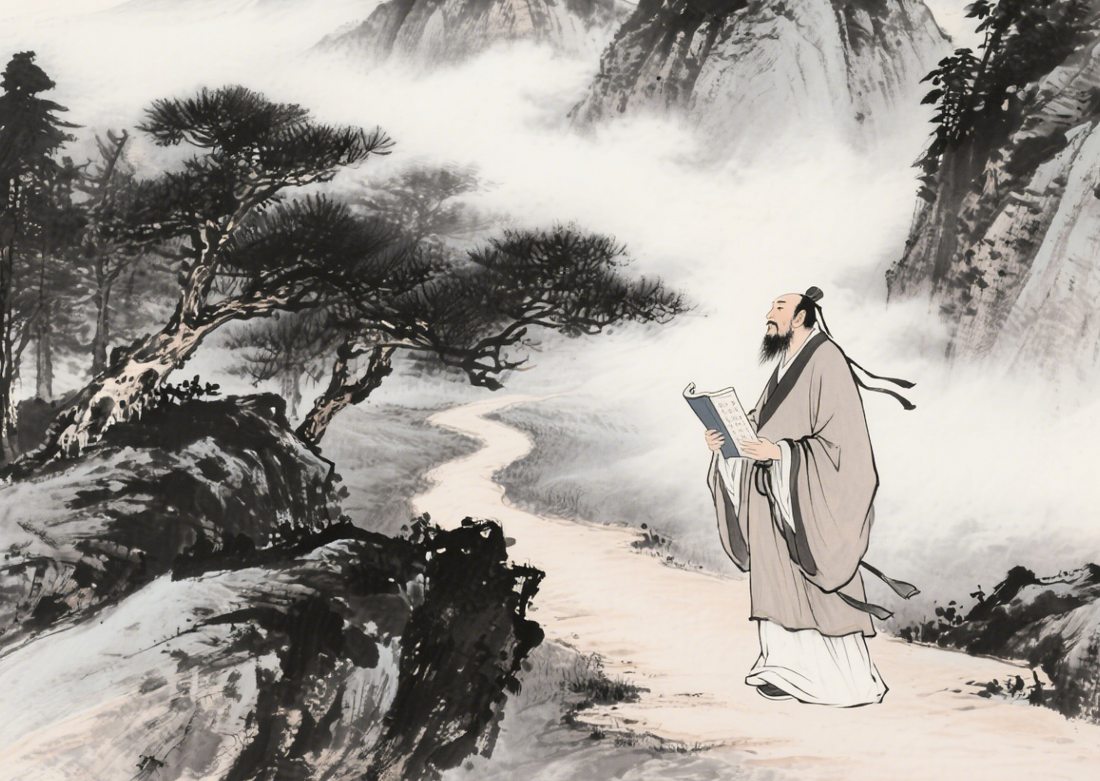Ban Si (班嗣) était un taoïste de la période de transition entre les dynasties Han occidentale et orientale. Originaire d'Anling, dans le Fufeng (aujourd'hui au nord-est de Xianyang, dans le Shaanxi), il était le cousin de Ban Biao. Sa famille possédait des livres offerts par l'empereur et jouissait d'une grande richesse. Il étudia un temps aux côtés de Ban Biao et fréquenta des personnalités telles que Yang Xiong et Huan Tan. Bien qu'il se soit consacré aux études confucéennes, il vénérait la pensée de Lao Tseu et de Zhuangzi, en particulier celle de ce dernier .
Il affirmait que Zhuangzi « rejeta les sages et la sagesse, cultiva la vie et préserva l'authenticité, embrassa le vide et l'indifférence, retourna à la nature, ne prit que la création pour maître et amie, et ne fut pas asservi par le monde profane. Pêchant dans un ravin, rien ne pouvait entraver sa volonté ; s'attardant sur une colline, le monde ne pouvait altérer sa joie. Il ne suivit pas le filet des sages, ni ne flatta l'appât des seigneurs, assouvissant librement ses aspirations – ceux qui parlaient de lui ne pouvaient le définir » (Hanshu : Biographie de Xu). Il admirait et louait la défense de la « nature » par Zhuangzi, méprisant ceux qui « étaient enchaînés par la bienveillance et la droiture, liés par les rênes de la gloire, suivaient les traces de Zhougong et de Confucius, et s'engageaient sur la voie de Yan Yuan et de Min Ziqian » (ibid.). Il estimait que la nature et les enseignements moraux s'opposaient, affirmant que « l'éducation mondaine » était incompatible avec la voie de la nature. Il disait : « Si l'on est déjà prisonnier de l'éducation mondaine, pourquoi se servir de la voie de la nature pour faire étalage de sa richesse ? Un homme apprit à marcher à Handan : avant même d'en maîtriser une ébauche, il oublia sa démarche et rebroussa chemin » (ibid.). Partant de cette opposition entre nature et enseignements moraux, il soutenait que concilier les enseignements moraux et la voie naturelle de Laozi et Zhuangzi revenait à imiter la démarche de Handan – une chose impossible à réaliser. Ses actes et ses paroles sont consignés dans le volume 100 du Hanshu.
✨ Recommended Taoist Talismans
Discover powerful talismans for your spiritual journey

















